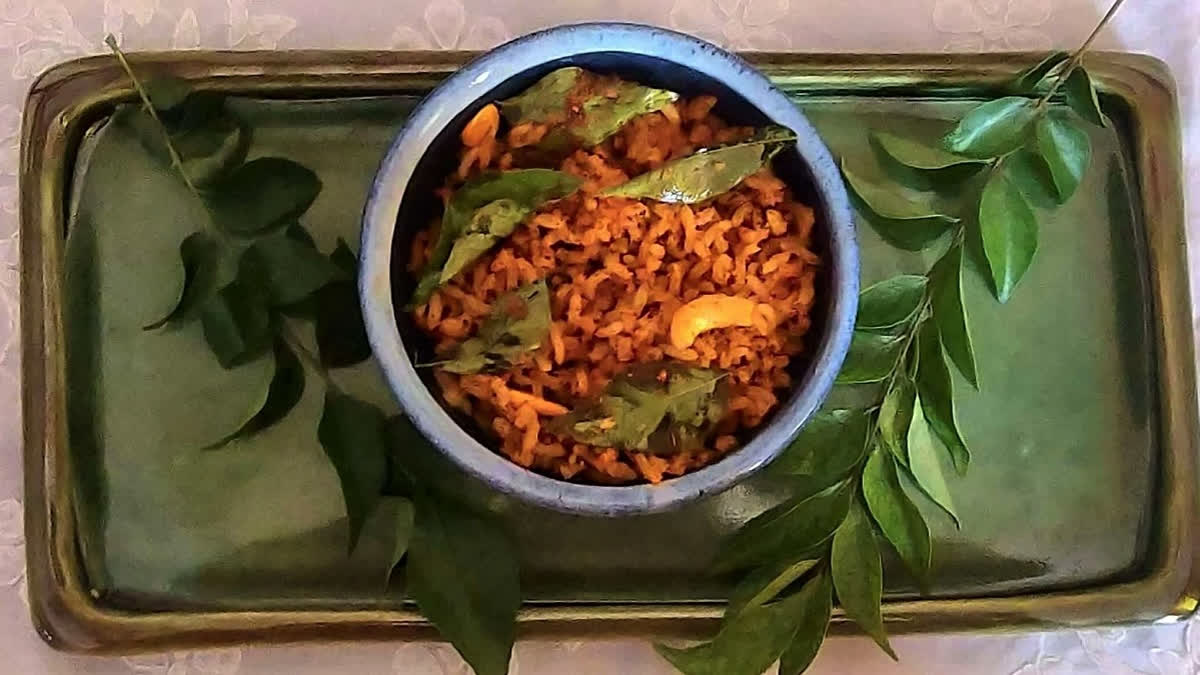Curry leaves are known for their fragrant aroma and health benefits, and are a staple in Andhra and Telangana cuisines. These glossy, fragrant leaves add depth to sambhar, curries and chutneys while offering a wealth of nutrients, antioxidants and medicinal properties. However, excessive consumption of curry leaves can lead to unexpected health issues. While their benefits are well-known, it’s equally important to understand the potential risks associated with overindulgence.
Scientifically known as Murraya koenigii, curry leaves are also called Karivepaku in Telugu, Kari Patta in Hindi, Karuvapillai in Tamil, Bheyapaku in Odia and Karuveppila in Malayalam.
Health Benefits of Curry Leaves
Before delving into the potential hazards, let’s revisit why curry leaves are celebrated in Indian cuisine and Ayurvedic medicine. They are an excellent source of iron, calcium, phosphorus, and vitamins A, B, C, and E.
Curry leaves support digestive health by promoting enzyme secretion and easing indigestion. The leaves are packed with bioactive compounds like alkaloids, flavonoids, and coumarins that reduce inflammation. Curry leaves protect the body against oxidative stress, potentially lowering the risk of chronic diseases.
Despite these advantages, overconsumption can have unintended consequences.
Side Effects of Overconsuming Curry Leaves
1. Alkaloids and Central Nervous System Impact
Curry leaves contain alkaloids, compounds that provide many of their therapeutic effects. However, as highlighted in the Encyclopedia of Applied Plant Sciences, excessive alkaloid intake may disrupt the central nervous system, digestive processes, and even immune and reproductive health.
2. Allergic Reactions
Though rare, some individuals may experience allergic reactions to curry leaves, particularly those sensitive to plant pollen. Symptoms include:
- Tightness in the chest
- Shortness of breath
- Indigestion
- Skin rashes
- Sneezing and itchy nose
- Anaphylaxis in severe cases
If you notice any of these symptoms, discontinue use and consult a doctor immediately.
3. Gastrointestinal Discomfort
Curry leaves are high in fibre, which aids digestion in moderate amounts. However, excessive consumption can lead to bloating, cramps, diarrhoea, or constipation.
4. Impact on Blood Sugar Levels
While curry leaves help regulate blood sugar, overuse may result in hypoglycemia (dangerously low blood sugar levels), particularly for those on diabetes medications. Monitoring intake is essential to avoid compounding the effects of medication.
5. Low Blood Pressure Risks
Curry leaves contain iron, which is essential for health, but overconsumption can lead to low blood pressure. This is particularly risky for those already managing blood pressure conditions.
6. Risk Of Kidney Stones
Curry leaves contain oxalates. According to a study published in the Journal of Nephrology, high dietary oxalate can increase kidney stone risk in susceptible individuals. Curry leaves are a moderate source, emphasizing the importance of portion control. For those with a history of kidney stones, it’s advisable to moderate consumption.
How To Safely Incorporate Curry Leaves Into Your Diet
Moderation Is Key: Limit consumption to 10–15 curry leaves a day.
Avoid Raw Pods: Always remove and avoid consuming the pods of the plant.
Monitor Allergies: If you are prone to allergies, introduce curry leaves gradually into your diet and monitor for reactions.
Pair With A Balanced Diet: Complement curry leaves with other nutrient-rich foods to avoid over-reliance on a single ingredient.
Consult A Doctor: If you have kidney stones, diabetes, or blood pressure concerns, speak with a doctor before incorporating curry leaves regularly.
Curry leaves are a nutritional powerhouse, offering numerous health benefits when consumed in moderation. However, like all good things, excessive use can tip the scales and lead to adverse effects. Whether you’re a fan of their flavour in your food or rely on them for their medicinal properties, understanding the risks of overconsumption is crucial for making informed dietary choices.
Sources:
- https://www.sciencedirect.com/referencework/9780123948083/encyclopedia-of-applied-plant-sciences
- https://pmc.ncbi.nlm.nih.gov/articles/PMC9245541/
- https://pubmed.ncbi.nlm.nih.gov/30109832/
- https://www.sciencedirect.com/science/article/abs/pii/S0378874102001678
- https://pmc.ncbi.nlm.nih.gov/articles/PMC6459305/
(Disclaimer: The information provided in this health article is for general informational purposes only and is not intended as medical advice. It is not a substitute for professional healthcare consultation, diagnosis, or treatment. Always seek the advice of your physician or other qualified health provider with any questions you may have regarding a medical condition.)
Read more:



